The deep web and dark web are often misunderstood concepts. Understanding their definitions is essential for navigating the internet safely. The deep web refers to any part of the internet that is not indexed by traditional search engines.
This includes databases, private records, and secure sites. In contrast, the dark web exists within the deep web and requires special software to access.
Accessing the dark web can be complicated. It is often portrayed as a hub for illegal activities. However, it also serves legitimate purposes, such as protecting whistleblowers.
Dark Web Definition
The dark web is a segment of the internet that is intentionally hidden. It is not indexed by standard search engines, making it difficult to access without specific tools. The dark web is known for hosting a variety of content, including both legal and illegal activities.
Users often associate the dark web with criminal behavior, such as drug trafficking and hacking services. However, it is also a safe haven for individuals needing anonymity. This includes journalists and activists operating in oppressive regimes.
What is the Dark Web, Deep Web, and Surface Web?
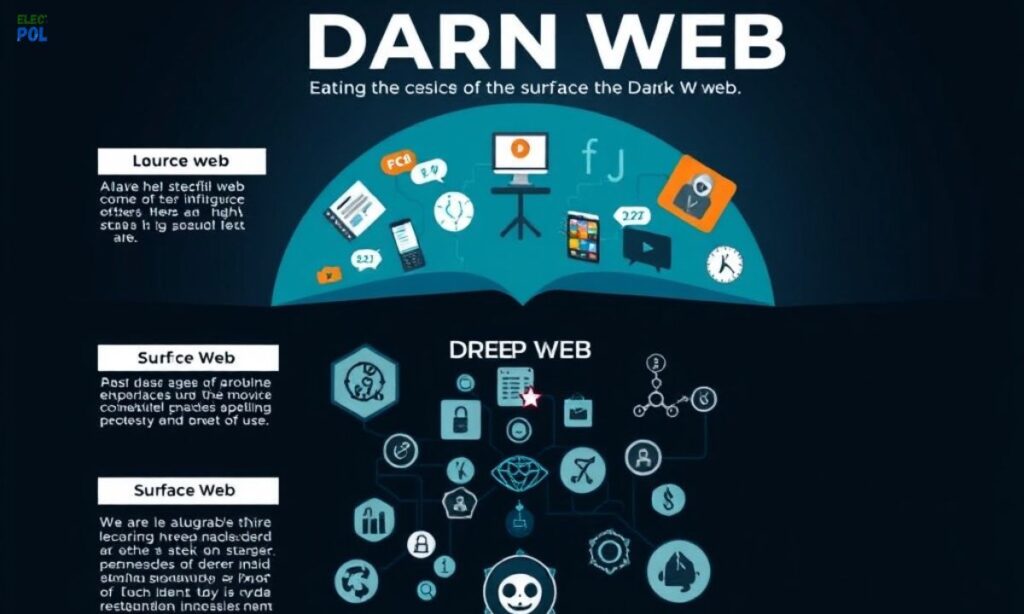
The surface web is the most familiar part of the internet. It includes all sites indexed by search engines like Google. This accounts for only about 5% of the total internet. The deep web, on the other hand, comprises all unindexed content, making up approximately 90% of the web.
The dark web is a smaller part of the deep web. It is intentionally concealed and requires special browsers to access, such as Tor. While much of the deep web is harmless, the dark web can be dangerous due to its association with illegal activities.
The Surface Web or Open Web
The surface web is what most people use daily. It consists of publicly accessible sites found through search engines. Examples include social media, news outlets, and e-commerce websites. This layer of the internet is user-friendly and widely utilized.
Despite its accessibility, the surface web only represents a fraction of the entire internet. It is essential to understand that there is much more below the surface. The deep web and dark web contain valuable information and significant risks.
Read this Blog: Showbizztoday.Com Showbiz Today – Covers the Hottest Celebrity News
The Deep Web
The deep web includes various types of content. It is composed of databases, private sites, and password-protected information. Examples are academic journals, online banking, and medical records. Most of this content is safe and legal.
However, the deep web also houses parts that can be risky. Some users engage in illegal activities, while others seek privacy. Understanding the deep web helps users navigate safely without stumbling into the dark web.
The Dark Web
The dark web is a hidden part of the internet that requires special tools to access. Users often navigate this space using the Tor network. It is known for its anonymity and the ability to evade government surveillance. However, it is essential to approach this realm with caution.
While the dark web can be a resource for privacy, it also harbors significant dangers. Users may encounter illegal markets and malicious software. Understanding these risks is crucial for anyone considering access.
How to Access the Dark Web
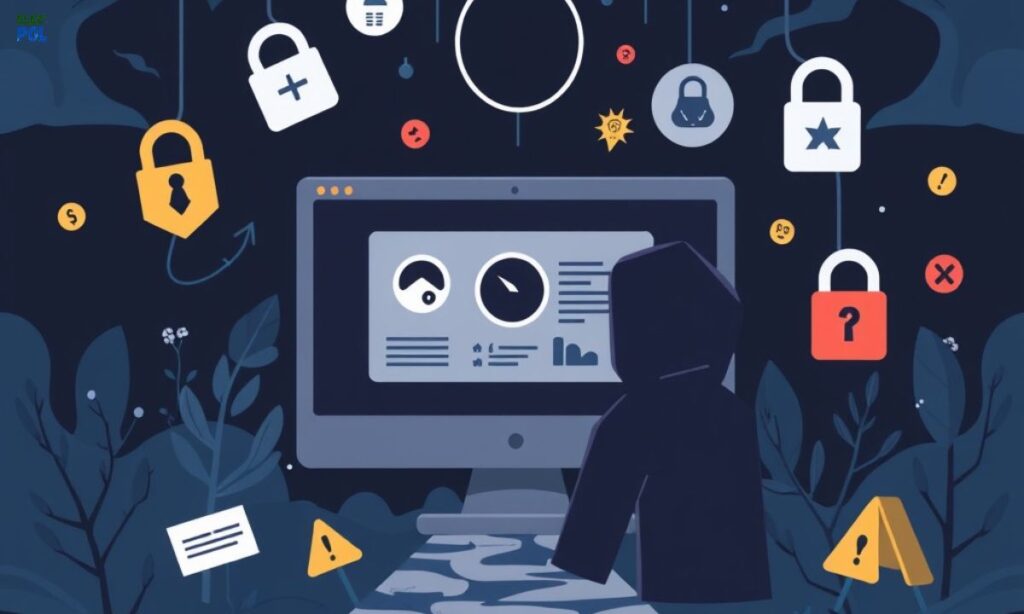
Accessing the dark web requires specific software, primarily the Tor browser. This tool allows users to browse anonymously. It encrypts user data and routes connections through multiple servers, enhancing privacy.
Before accessing the dark web, users should understand the risks involved. Familiarity with safe browsing practices helps minimize exposure to harmful content. Knowledge is vital when exploring this hidden internet.
Is it Illegal to Go on the Dark Web?
Simply accessing the dark web is not illegal. However, engaging in illegal activities while on it can lead to serious consequences. The legality of actions taken on the dark web depends on the user’s intent and activities.
Many individuals use the dark web for legitimate reasons, such as privacy protection. However, users should be aware of the potential legal ramifications of their actions. Understanding the law is crucial for safe navigation.
Read this Blog: Movies4u: Your Ultimate Hub for Streaming Movies Online
Is Tor Illegal to Use?
The Tor network itself is not illegal. It was developed to protect user privacy and has legitimate uses. Many people use Tor to browse the internet without fear of surveillance. However, illegal activities can occur on the dark web using Tor.
Using Tor is a personal choice. Individuals seeking anonymity may find it beneficial. However, users should be cautious about the content they access while using it.
Are Sites on the Dark Web Illegal to Use and Visit?
Accessing sites on the dark web is not inherently illegal. However, many sites operate outside the law, offering illicit goods and services. Users must exercise caution when exploring these areas.
While some dark web sites provide valuable resources, others can lead to legal trouble. Understanding the nature of the sites visited is essential for avoiding complications. Users should be aware of the risks involved.
Types of Threats on the Dark Web
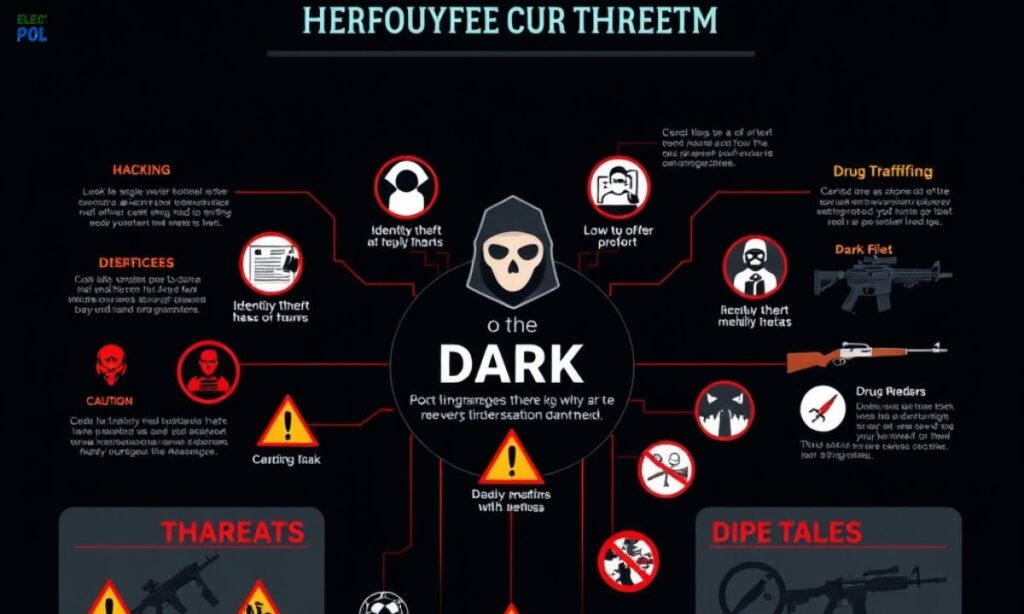
The dark web is rife with various threats. Users may encounter malicious software, scams, and government monitoring. Understanding these dangers is crucial for anyone considering access.
Being informed about potential threats helps users navigate safely. Awareness of common risks can minimize exposure to dangerous content. This knowledge is essential for protecting oneself online.
Malicious Software
Malicious software is prevalent on the dark web. Users may inadvertently download malware, which can compromise their security. Common types of malware include keyloggers and ransomware.
Staying vigilant against malware is essential. Utilizing antivirus software can help protect against threats. Being cautious about file downloads can prevent infections.
Government Monitoring
Government agencies monitor the dark web for illegal activities. Users may be at risk of surveillance simply by visiting certain sites. Understanding the potential for government monitoring is crucial for maintaining privacy.
Many individuals use the dark web to evade government scrutiny. However, this comes with inherent risks. Users should be aware of the implications of their actions.
Scams
Scams are rampant on the dark web. Fraudulent services may promise illegal goods or services but often fail to deliver. Users should be cautious and skeptical of any offers encountered.
Being aware of common scams can help users avoid fraud. Trusting instincts and conducting thorough research is vital. Staying informed is key to navigating this hidden internet.
Your Digital Safety is at Risk!
Your digital safety is always at risk, especially when exploring the dark web. Cybercriminals exploit vulnerabilities to steal personal information. Understanding these risks is vital for protecting oneself online.
Using security tools like VPNs and antivirus software can help mitigate threats. Awareness of safe browsing practices is essential for digital safety. Taking proactive measures can protect against exploitation.
End User Protection Against Exploitation by the Dark Web
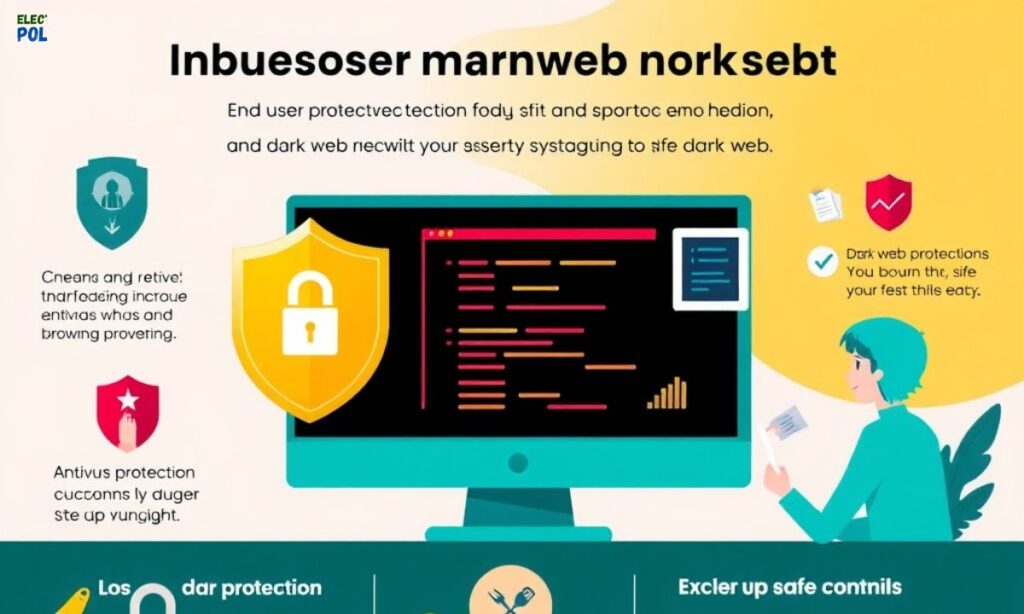
Protecting yourself from exploitation on the dark web is crucial. Users should employ various security measures to safeguard their information. This includes using strong passwords and enabling two-factor authentication.
Additionally, monitoring online activity can help identify potential threats. Being proactive about digital safety can minimize risks associated with the dark web. Knowledge is power in protecting oneself online.
How to Access the Dark Web Safely
Accessing the dark web safely requires careful planning. Users should educate themselves about potential risks and how to mitigate them. Utilizing security tools can enhance safety during exploration.
Employing good browsing practices is essential. Avoiding suspicious links and downloads can protect against malware. Staying informed is key to a safe experience on the dark web.
7 Tips for Safe Access to the Dark Web
Trust your intuition: If something feels off, leave the site immediately.
Detach your online persona: Use anonymous accounts and avoid personal information.
Monitor for identity theft: Use services that alert you to potential threats.
Avoid downloads: Steer clear of files to reduce malware risks.
Disable risky settings: Turn off ActiveX and Java to prevent exploits.
Use a non-admin account: Limit permissions to reduce malware impact.
Restrict access: Protect your devices from unauthorized users.
Frequently Asked Questions
What is the dark web?
The dark web is a hidden part of the internet requiring special software to access, often associated with illegal activities.
Is it illegal to access the dark web?
No, accessing the dark web is not illegal, but engaging in illegal activities while there can lead to legal trouble.
How do I access the dark web?
You can access the dark web using the Tor browser, which provides anonymity and security.
What are the risks of the dark web?
Risks include encountering malware, scams, and potential government monitoring.
Can I stay safe on the dark web?
Yes, you can stay safe by using security tools, following best practices, and being cautious about what you access.
Conclusion
The dark web and deep web are complex areas of the internet that require careful navigation. Understanding their differences is essential for safe browsing. While the dark web offers anonymity, it also presents significant risks.
By staying informed and employing protective measures, users can explore these hidden spaces more safely. Remember that knowledge is the best defense against the dangers lurking in the depths of the internet.

I’m passionate electric scooter enthusiast and the voice behind this blog. I’m here to share my expertise and insights with you. From in-depth reviews to problem-solving guides, my goal is to help you make the most of your electric scooter experience.
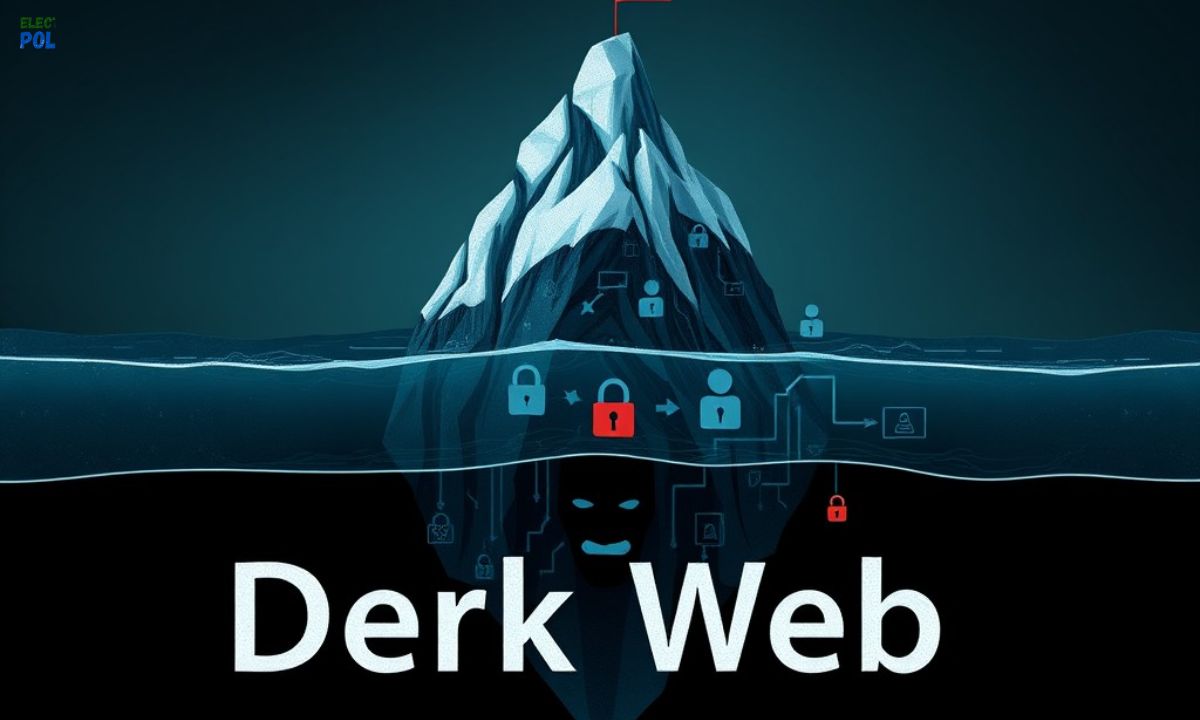







![Gomyfinance.com Invest: I Made $5,000 in My First Month [Real Results 2025]](https://electopolo.com/wp-content/uploads/2025/05/Gomyfinance.com-Invest-I-Made-5000-in-My-First-Month-Real-Results-2025-150x150.jpg)


